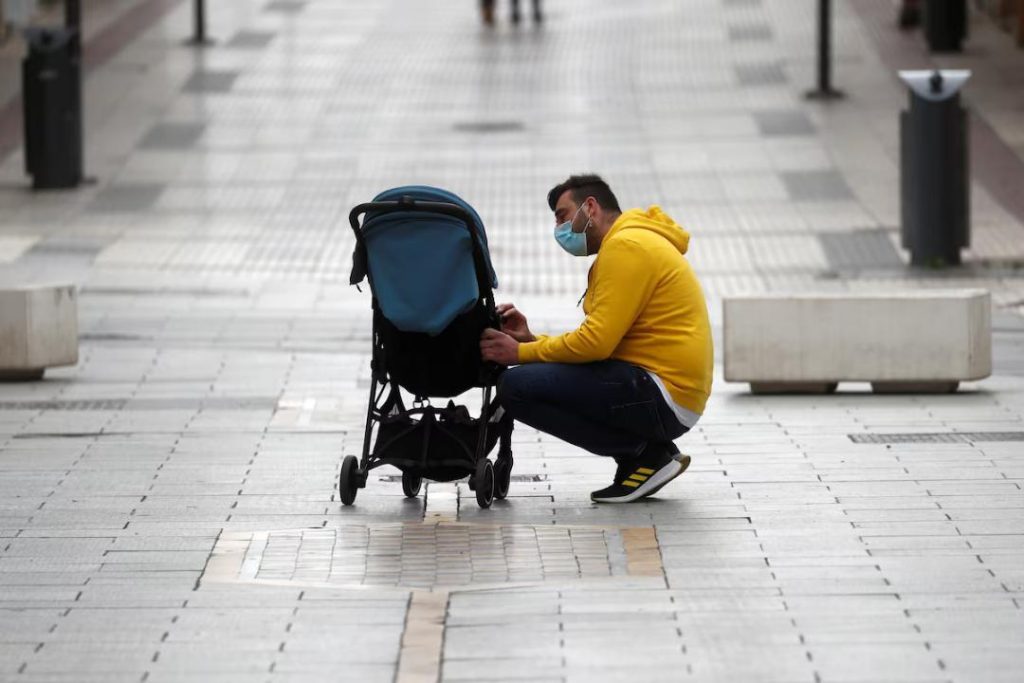
Spain to Offer 17 Weeks of Parental Leave to Both Mothers and Fathers
In a significant move towards promoting gender equality and supporting new parents, Spain has announced plans to extend its parental leave policy to 17 weeks, with both mothers and fathers eligible for fully-paid leave after the birth of a child. This decision is a major step forward, as Spain and Finland are the only two countries in the European Union (EU) to offer equal, fully-paid birth leave to both parents.
The new policy, which is set to come into effect in the coming months, will provide an additional week of paid leave to parents, taking the total leave period to 17 weeks. This move is seen as a significant step towards promoting gender equality and supporting new parents, particularly fathers, who have historically taken on a smaller role in childcare and family responsibilities.
The decision to extend parental leave was announced by Spanish Minister of Equality, Irene Montero, who stated that “Spain is moving towards feminism…and there’d be no turning back.” Montero emphasized the importance of promoting gender equality and supporting new parents, particularly in the early stages of parenthood.
The new policy is set to benefit not only mothers but also fathers, who will now have the opportunity to take an equal share of parental leave. This is a significant departure from traditional gender roles, where mothers have historically taken on the majority of childcare responsibilities. By providing equal leave to both parents, Spain is promoting a more equal distribution of childcare responsibilities and encouraging fathers to be more involved in their children’s lives.
The benefits of extended parental leave are numerous. Research has shown that extended leave periods can have a positive impact on both the physical and mental health of new parents. In addition, extended leave can also have a positive impact on the development and well-being of the child. Children who are cared for by both parents in the early stages of life tend to have better language skills, social skills, and emotional intelligence.
Furthermore, extended parental leave can also have a positive impact on the economy. Studies have shown that extended leave periods can reduce the rate of infant mortality, improve the health and well-being of new mothers, and increase the chances of breastfeeding. All of these factors can have a positive impact on the economy, as they can reduce healthcare costs and increase productivity.
Spain’s decision to extend parental leave is also seen as a significant step towards promoting gender equality. In many countries, women continue to bear the majority of childcare responsibilities, which can impact their ability to participate in the workforce and advance their careers. By providing equal leave to both parents, Spain is promoting a more equal distribution of childcare responsibilities and encouraging men to be more involved in their children’s lives.
The decision to extend parental leave is also seen as a positive step towards promoting work-life balance. In today’s fast-paced world, it is increasingly difficult for parents to balance their work and family responsibilities. By providing extended leave periods, Spain is promoting a more balanced approach to work and family life, which can have a positive impact on the well-being of both parents and children.
In conclusion, Spain’s decision to extend parental leave to 17 weeks, with equal leave for both mothers and fathers, is a significant step forward towards promoting gender equality and supporting new parents. This move is likely to have a positive impact on the physical and mental health of new parents, the development and well-being of children, and the economy. As Spain moves towards becoming one of the most progressive countries in terms of parental leave, it is an inspiration to other countries around the world to follow suit.



